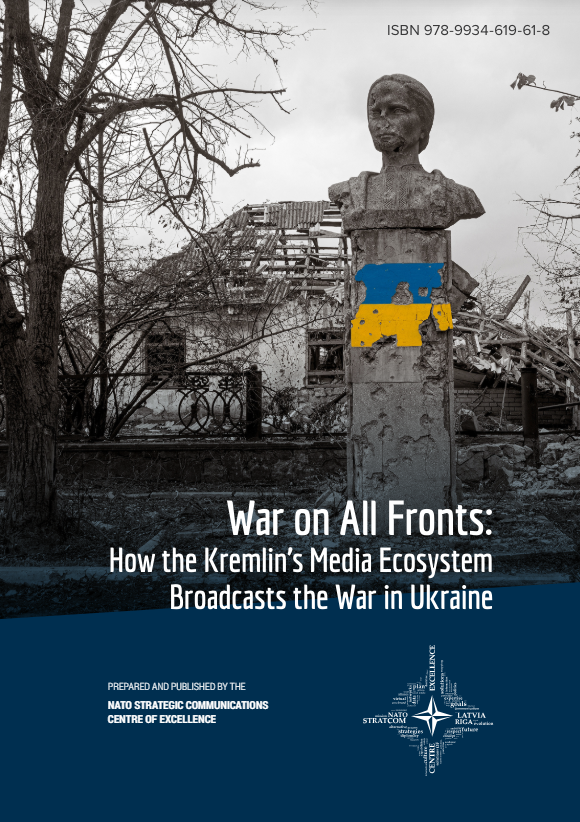War on All Fronts: How the Kremlin’s Media Ecosystem Broadcasts the War in Ukraine
War on All Fronts: How the Kremlin’s Media Ecosystem Broadcasts the War in Ukraine
Author(s): Viktoras Daukšas, Laima Venclauskienė, Karina Urbanavičiūtė, Ofer Fridman
Subject(s): Media studies, Communication studies, Security and defense, ICT Information and Communications Technologies, Peace and Conflict Studies, Russian war against Ukraine
Published by: NATO Strategic Communications Centre of Excellence
Keywords: Ukraine; Russia; war; media; Kremlin; propaganda;
Summary/Abstract: Much ink has been spilled attempting to understand the Kremlin’s strategy in the media space, particularly in its domestic hybrid media environment since the beginning of the full-scale invasion of Ukraine on 24 February 2022. Despite this significant effort, much remains unclear about the Kremlin’s true intentions, capabilities, and strategies. Most importantly experts still disagree on whether the Kremlin truly controls the Russian domestic media ecosystem. On the one side of the argument, there are those who argue that the Kremlin, like many other contemporary ‘informational autocrats’, seeks to control Russia’s media space through ownership, censorship, and propaganda. On the other side, however, are those who claim that in the contemporary era of digital technologies and social networks, the Kremlin not only struggles to exercise control, but also understands its limitations and tries to adapt its strategy accordingly by demonopolising power ‘among a variety of actors who “think right”’. This raises an important question about Russia’s strategy in the media space: does the Kremlin truly control it? State-owned television has been serving narratives aligning with the Kremlin’s agenda for decades. Television gets the top spot as the most trusted information source in Russia and bypasses other means of communication. Notably, after the invasion, the broadcasting strategy was changed: informational TV shows became longer and the same messages were also repeated on programmes that are not inherently political—for example, relatives of soldiers or members of the Russian military are often featured in the weekly gameshow Pole Chudes (‘Field of Miracles’) to hone the perception of support for the ‘special military operation’. Such an approach to communication is not surprising, as repetition leads to familiarity, which then leads to acceptance.
- E-ISBN-13: 978-9934-619-61-8
- Print-ISBN-13: 978-9934-619-61-8
- Page Count: 114
- Publication Year: 2024
- Language: English
- eBook-PDF
- Table of Content
- Introduction

